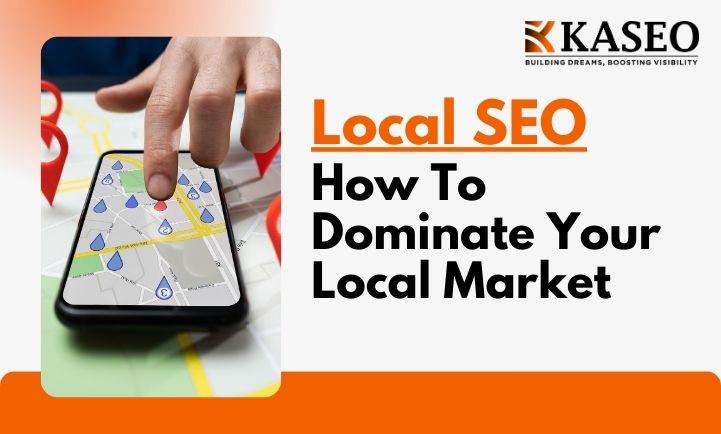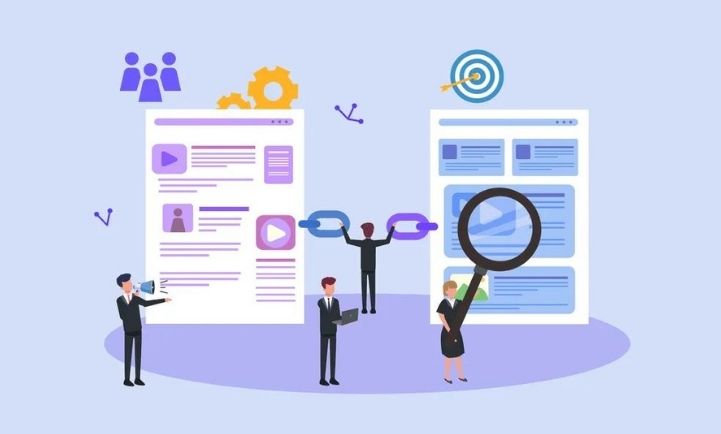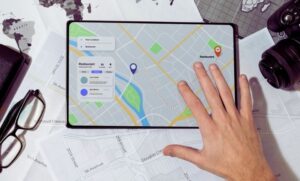
In a world where consumers increasingly turn to online searches to find local businesses, mastering local SEO is crucial for standing out in your market. Local SEO helps businesses appear in local search results and attract customers in their geographic area, making it an essential strategy for driving local traffic and increasing visibility. With more people using smartphones and voice search to find nearby services, having a robust local SEO strategy can give you a significant edge over your competitors. By optimizing your online presence, you can ensure your business shows up when potential customers are actively searching for products or services like yours.
Understanding Local SEO
What is Local SEO?
Local SEO focuses on optimizing your online presence to attract more business from relevant local searches. It differs from general SEO by targeting search queries with local intent, such as “restaurants near me” or “plumbers in Auckland.” Local SEO helps businesses rank higher in search results when users search for products or services within their vicinity.
How Local SEO Works
Local search algorithms prioritize three main factors: relevance, distance, and prominence. Relevance refers to how well a business matches a user’s search query, distance is how close the business is to the searcher, and prominence is how well-known the business is based on factors like reviews and backlinks. Key components include optimizing your Google My Business (GMB) profile, building local citations, and creating localized content.
Optimizing Your Google My Business Profile
Claim and Verify Your Listing
The first step in local SEO is claiming and verifying your Google My Business (GMB) listing. Visit the Google My Business website, sign in with your Google account, and follow the prompts to claim your business. Verification typically involves receiving a postcard from Google with a verification code.
Complete Your Profile
Ensure your GMB profile is fully completed with accurate information. This includes your business name, address, phone number, business hours, and website URL. Add high-quality photos of your business and products, and keep your information updated to maintain accuracy.
Optimize for Keywords
Incorporate relevant local keywords into your business description, services, and posts. For instance, if you’re agency in Auckland, use phrases like “Digital Marketing Agency in Auckland” in your description. This helps Google understand what your business offers and improves your chances of appearing in local search results.
Encourage and Manage Reviews
Customer reviews play a significant role in local SEO. Encourage satisfied customers to leave positive reviews on your GMB listing and other review sites. Respond to reviews promptly, addressing both positive and negative feedback to show engagement and improve your online reputation.
Building Local Citations

What Are Local Citations?
Local citations are online mentions of your business’s name, address, and phone number (NAP) on other websites. Citations help establish credibility and relevance in local searches. They can appear on local directories, industry-specific websites, and other relevant platforms.
How to Build Citations
To build citations, list your business on local directories such as Yellow Pages New Zealand, Yelp, and local business associFations. Ensure your NAP information is consistent across all listings. Look for opportunities to get listed on industry-specific sites and local blogs.
Consistency is Key
Maintaining consistent NAP information is crucial. Inaccurate or inconsistent details can confuse search engines and potential customers. Regularly review and update your citations to ensure they reflect your current business information.
Creating Localized Content
Importance of Localized Content
Creating content that reflects local interests and issues can boost your visibility in local search results. Localized content helps you connect with your audience and demonstrates your relevance to their specific needs.
Types of Local Content
Examples of localized content include blog posts about local events, news articles, case studies featuring local customers, and location-specific landing pages. For example, if you run a New Zealand-based landscaping business, write a blog post about the best landscaping practices for Kiwi gardens.
Local Keywords and On-Page SEO
Incorporate local keywords naturally into your content, including in title tags, meta descriptions, headers, and throughout the text. Ensure your website’s on-page SEO is optimized for local searches by using location-based keywords and creating relevant, high-quality content.
Building Local Backlinks

What Are Local Backlinks?
Local backlinks are links from other websites that point to your business site and are relevant to your local area. They enhance your site’s authority and improve local search rankings.
How to Earn Local Backlinks
Earn local backlinks by getting featured in local news stories, partnering with local influencers, sponsoring community events, and engaging in local business collaborations. For instance, sponsoring a local charity event can lead to backlinks from the event’s website and local media coverage.
Quality Over Quantity
Focus on obtaining high-quality, relevant backlinks rather than a large number of low-quality links. Quality backlinks from reputable local sources have a more significant impact on your local search rankings.
Leveraging Social Media for Local SEO
Social Media’s Role in Local SEO
Social media can influence local search rankings by driving traffic to your website, increasing brand visibility, and fostering local engagement. Active social media profiles contribute to your overall online presence and can support your local SEO efforts.
Local Social Media Strategies
Engage with your local audience by sharing location-specific content, promoting local events, and participating in community conversations. Use platforms like Facebook and Instagram to connect with local customers and drive traffic to your website.
Using Social Media to Drive Local Traffic
Promote special offers, local events, and relevant content on your social media channels to attract local visitors. Encourage users to share your content and interact with your posts to increase local visibility.
Monitoring and Measuring Your Local SEO Efforts

Key Metrics to Track
Track metrics such as local search rankings, website traffic from local searches, and conversion rates from local visitors. These metrics help you gauge the effectiveness of your local SEO strategy and identify areas for improvement.
Tools for Local SEO
Utilize tools like Google Analytics and Google Search Console to monitor your SEO performance. Local SEO tools like BrightLocal or Moz Local can provide insights into your local search rankings and citation health.
Regular Reviews and Adjustments
Regularly review your local SEO performance and make necessary adjustments based on data insights. Continuously refine your strategy to address changes in search algorithms, local market trends, and customer behavior.
Conclusion
Mastering local SEO is essential for dominating your local market and attracting customers in your geographic area. By optimizing your Google My Business profile, building local citations, creating localized content, and leveraging social media, you can enhance your visibility in local search results and drive more local traffic to your business.
At Kaseo Web, we specialize in helping businesses improve their local SEO and achieve their marketing goals. Contact us today to learn how we can assist you in dominating your local market and driving growth through effective local SEO strategies.





